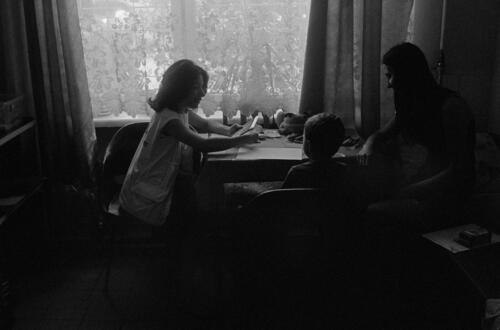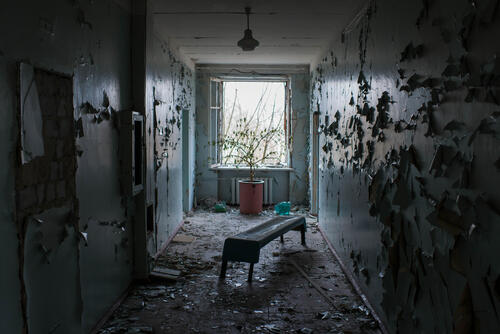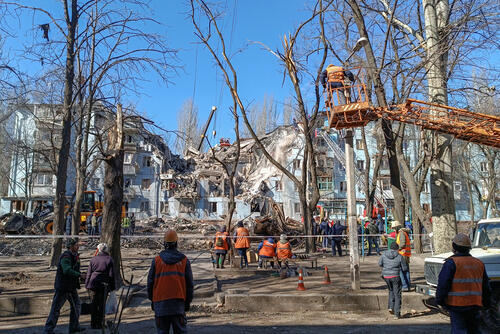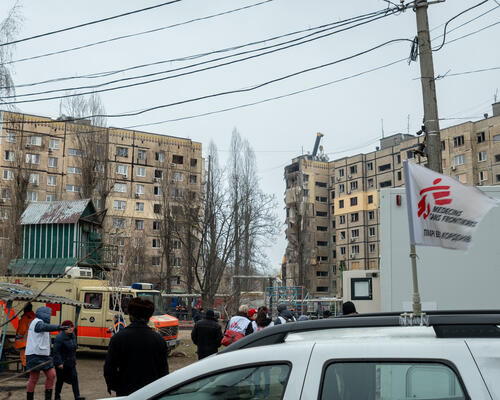Since the beginning of the war in Ukraine, Médecins Sans Frontières (MSF) has been working in Dnipro and Zaporizhzhia, regions that first hosted displaced people from Mariupol, Berdiansk, Melitopol and other settlements not currently controlled by Ukraine.
According to Ukrainian officials, about 300,000 displaced people moved to the Dnipropetrovsk region, and about 100,000 to Zaporizhzhia.
Since May 2022, MSF teams have conducted almost 8,000 consultations on non-communicable diseases in the area, providing patients with medicines.
“We see a real need for people living with non-communicable diseases,” says Gilles Grandclément, MSF project coordinator in Dnipro and Zaporizhzhia.
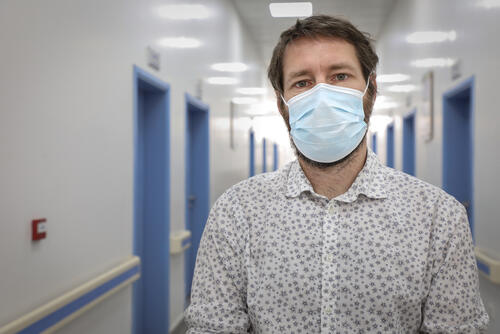
“The biggest issue we see by far is cardiovascular disease, followed by respiratory and musculoskeletal conditions in people who have left their homes and will likely have long journeys to reach places where they can find new accommodation and continue their lives,” says Gilles.
“Patients with non-communicable and chronic diseases need medication on an ongoing basis, it’s not easy to get the medicines they need when on the move,” he says.
Since May 2022, MSF teams in the region have visited 82 temporary shelters for elderly people and families with children. Three mobile clinics operate in Dnipro and two in Zaporizhzhia. In addition to providing medical services, MSF is helping shelters prepare for the winter. MSF provides centres for displaced people with important supplies, such as hygiene kits, diapers for babies and medical items, while also supporting the renovation of the premises.
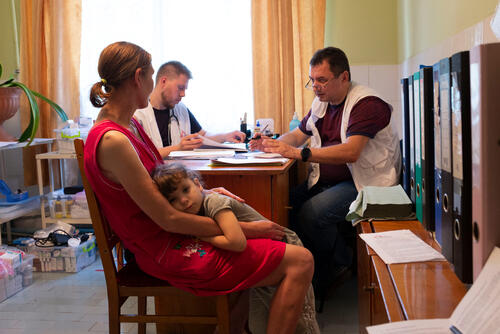
Stanislav Kramskyi, a nurse, works in the mobile clinics in Zaporizhzhia, providing primary healthcare and mental health consultations, as well as free medicine. Many people, including children, suffer from the stress and trauma of the war.
“Seeing the children of the war, I can divide them into two categories. The first one includes emotionally unstable children who are hard to communicate with and are often distressed,” Stanislav explains. “The second category includes children who had to grow up prematurely. Their eyes, behaviour and thoughts are of an adult. Same story with this family. The elder daughter who is about 10 years old behaves as if she is adult, just like her mother, while the younger one needs care.”
Seeing the children of the war, I can divide them into two categories. The first one includes emotionally unstable children who are hard to communicate with and are often distressed. The second category includes children who had to grow up prematurely. Their eyes, behaviour and thoughts are of an adult.Stanislav Kramskyi, MSF nurse in Zaporizhzhia
The MSF mobile team in Zaporizhzhia consists of five professionals: a psychologist, a doctor, a nurse, a social worker, and a driver.
According to Stanislav, for those who stay in shelters it is sometimes crucial just to have simple conversations with people, and medical examination may fade into the background.
“I recall one elderly lady from a shelter in Zaporizhzhia. Her hypertension had worsened,” says Stanislav. “I asked her to measure her blood pressure regularly and record the findings in a notebook, I gave her my own. During her next appointment we arrived next time, I asked her to show me the notebook. She showed it and smiled – it was empty. She said that she had no time to care about health while the war is ongoing.”
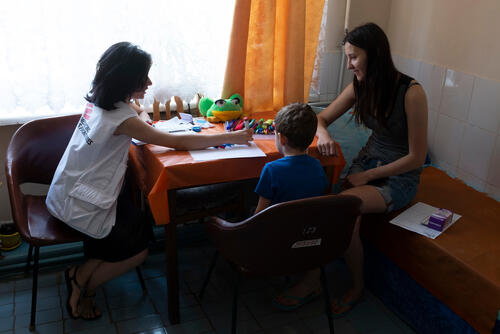
The mobile clinic team also includes psychologists, like Marina Popova.
“Marina works in a separate room designated for psychological counselling,” says Stanislav. “She sees paediatric patients with their parents and adults separately. I can see how women are coping despite all the hardships. They are hiding their problems behind a smile. Marina helps them to overcome these negative emotions.”
Before the war broke out, the exhibition centre and concert hall in Zaporizhzia was a popular place for people to visit. Now, it is one of the main places in the region where internally displaced people gather to get help. Stanislav has observed huge queues multiple times while passing by.
“People have different needs and MSF psychologists like Marina provide what support they can. Some need to get papers done, some come here to get basic necessities,” he says. “There are some who don’t want something tangible, they want to talk and share what they’ve been through, and through talking try to heal themselves. They seek faith in some future and want to learn to make plans during the war.”
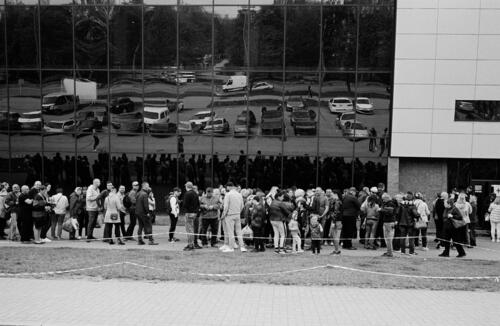
Gilles Grandclément says that more than 1,200 patients have already sought help from MSF mental health specialists.
“Quite often we come across people in their 40s or 50s, who spent years working on careers saving up to buy homes for their families, only to see their homes destroyed and their life savings along with it,” says Gilles. “It’s hard to understand just how hard this is on people – we witness the destruction and the impact it has on people, but unless it happens to you, you’ll never really know what it’s like.”
MSF psychologists often say only families and children can keep these people strong. But despite this, they remain in shock. It is important to provide these patients with a comfortable place where they can share their emotions. The specialist will listen to them and offer methods for coping with stress, trauma, and losses.
MSF staff, many of whom are displaced themselves, also receive stress management training. MSF works in 36 shelters in Zaporizhzhia and 46 shelters in Dnipro.



